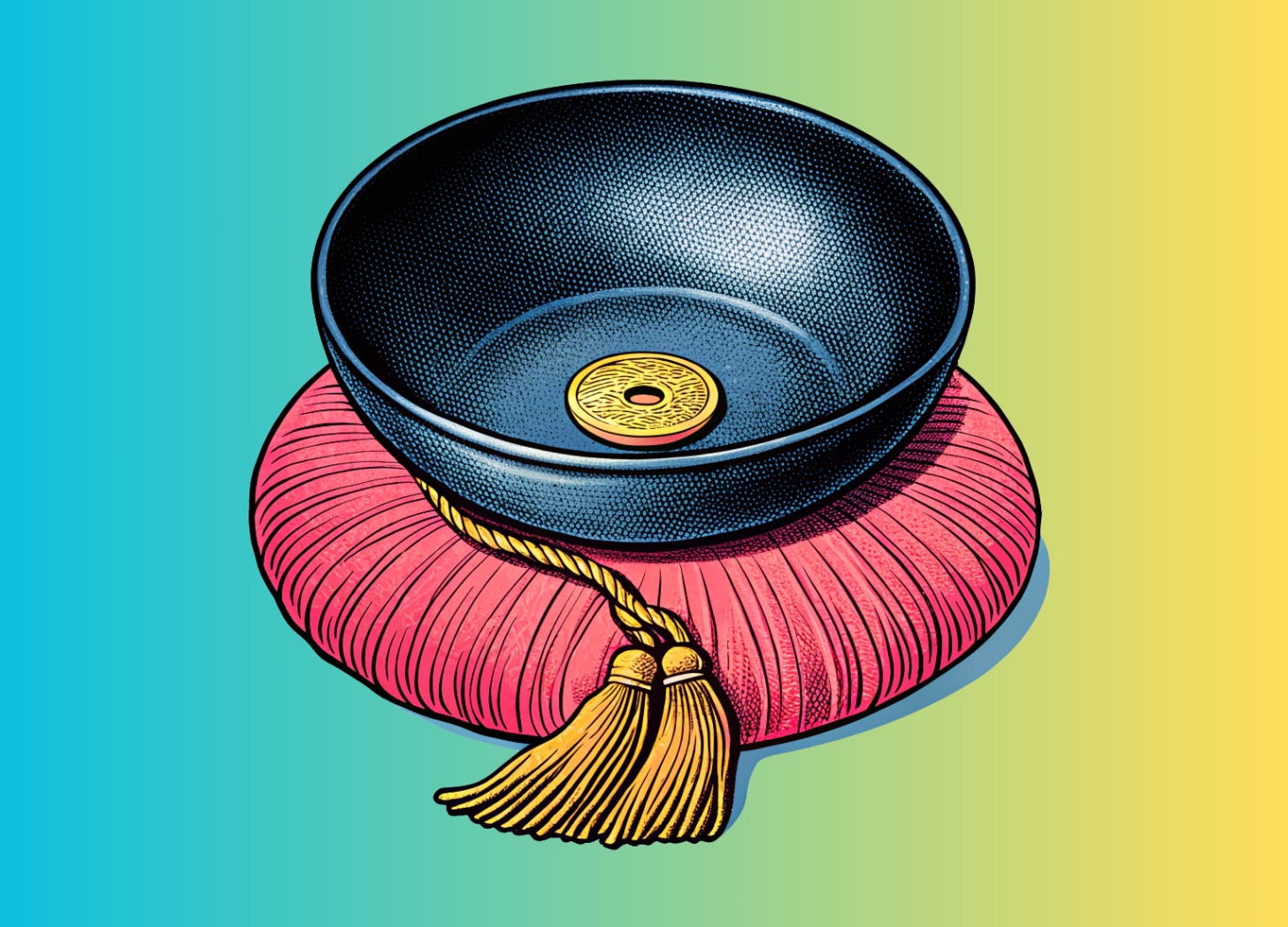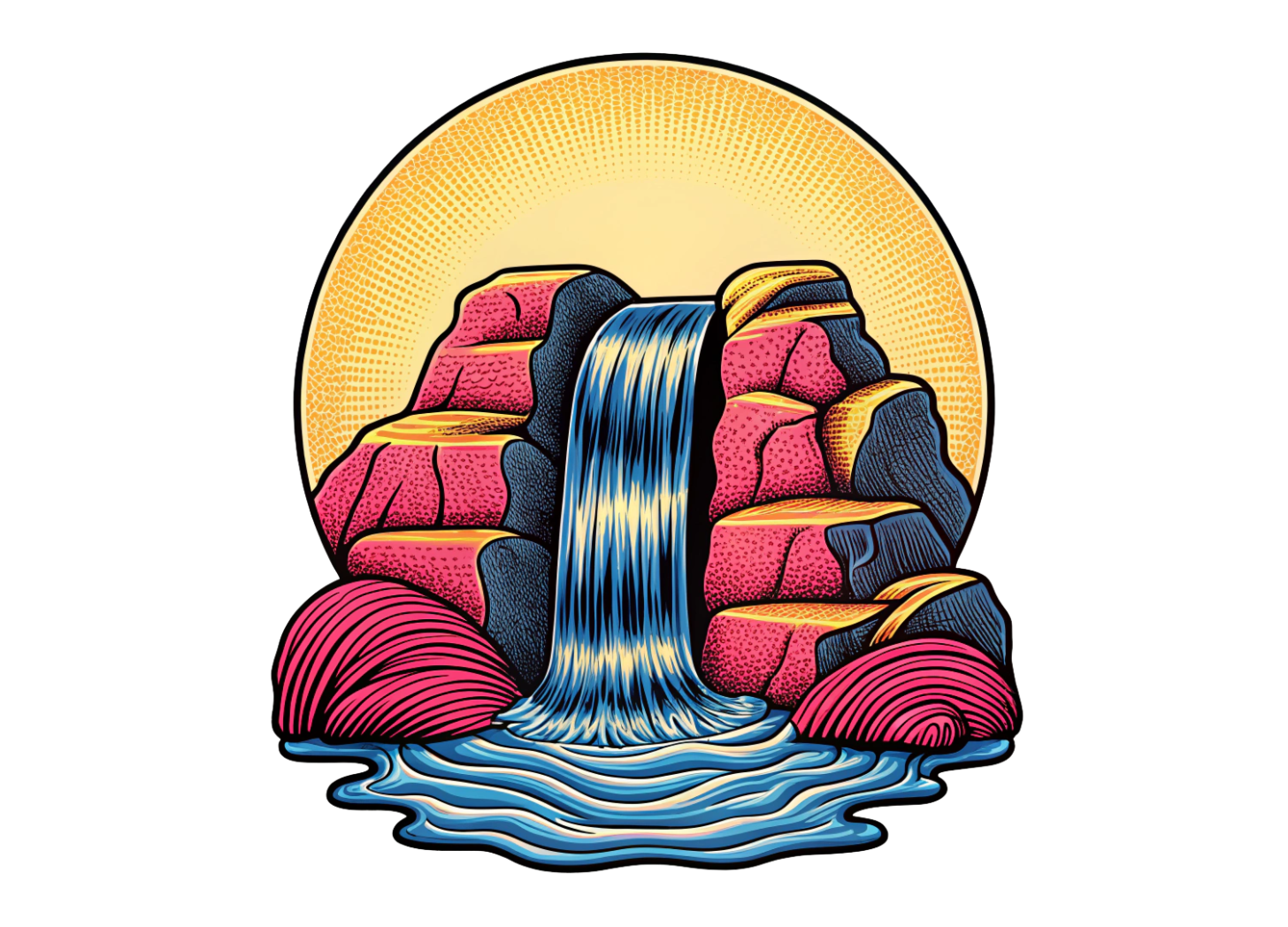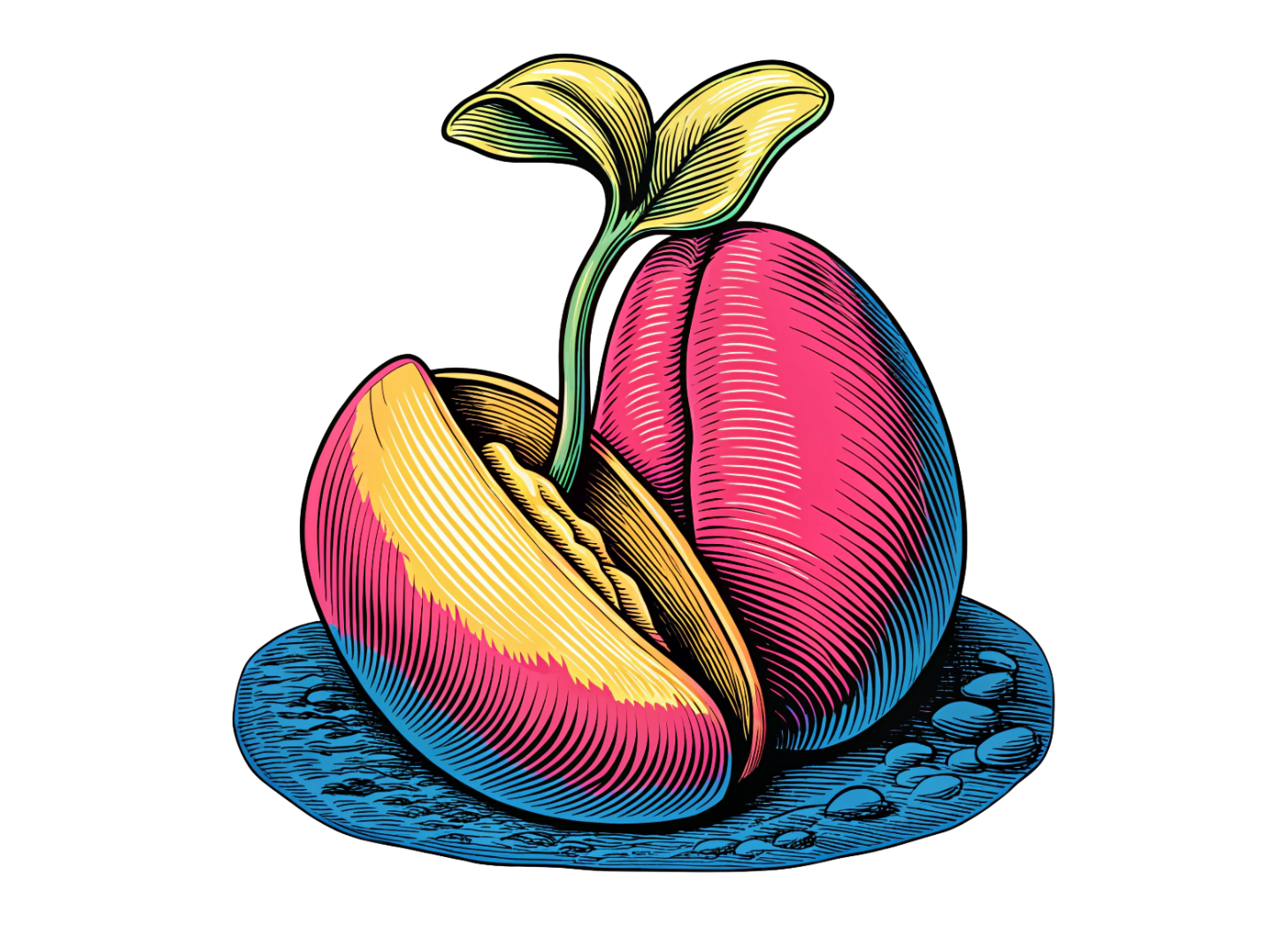Zen Money
Money, like water, can nourish or drown us.
Let me acknowledge the contradictory nature of this post upfront. Applying Zen principles to wealth — the pursuit of material gain — directly opposes the teachings of non-attachment at the heart of Zen Buddhism.
There are going to be a lot of contradictions in this article, but my intention is to explore how Zen wisdom might inform our relationship with money — without claiming perfect alignment.
A more Zen-aligned perspective might round this entire post off by saying — "A bowl of rice is wealth enough for one meal; beyond that, everything is attachment."
I acknowledge the tension here — but choose to explore this intersection anyway.
What follows are twelve principles that merge Zen-inspired teachings with modern money matters.
Where conventional wisdom pushes endless accumulation, anxiety, and attachment — Zen principles guide us toward mindful sufficiency, purposeful action, generous sharing, and the freedom that comes from holding money lightly while using it wisely.
Is Having Money Un-Zen?
Zen doesn't directly reject money — it rejects delusion. The issue isn’t wealth itself, but how we relate to it.
When money becomes a symbol of identity, status, or control, it binds us. But when held lightly, it can serve as a tool to support a peaceful life.
The problem arises not from money itself, but from craving (tanhā) — the restless pull to have, to compare, to protect.
The paradox here is that flat rejection is just another form of attachment. Turning away from money in disgust is no more enlightened than chasing it in greed. Zen points instead to discernment — to use resources wisely, with integrity, and with the intention to reduce as much suffering as possible.
Before I get into the meat of this article, I have to point out that, of course, letting go of all forms of money remains a perfectly valid path. Many Zen students eventually choose to renounce all claims to wealth in order to dissolve lingering attachments. When you have money, you have something to lose — and that fear can quietly possess you.
Renunciation, in this sense, becomes freedom.
This post is for the householder. Those who acknowledge the need for money, but don’t want to be ruled by it.
The Zen Approach To Money is Simple
Earn with integrity
Spend mindfully
Save with humility
Give without expectation
Here are 12 Zen-inspired principles for stewarding money without letting it rule your life:
1. Mizu no Kokoro: Flow Resources Intentionally
Small streams, flowing constantly, carve mountains over time.
Mizu no Kokoro (水の心) means "water mind." Zen tradition has a strong appreciation of water's unrelenting nature.
It’s gentle yet persistent — it slowly but surely transforms everything it touches.
Water doesn't struggle against the mountain; it simply flows according to its nature, finding the path of least resistance while gradually reshaping the hardest stone.
This principle can be applied to almost anything — it's the idea that small, steady effort leads to big change when given enough time.
In the context of money, this can be reflected through our savings habits.
The quiet, disciplined act of putting aside at least 10% of the money that flows into your life creates a steady, powerful current when given enough time.
Approach saving not as a rigid discipline, but as a natural and consistent current for your resources to flow through.
It’s not about how much you save at once, but how consistently the stream flows. Even the smallest trickle, if uninterrupted, can fill a reservoir.
2. Kanso: Live Below Your Means
True wealth lies not in having more, but in needing less.
Kanso (簡素) means simplicity — it’s a Zen principle of clarity, modesty, and the removal of excess.
It teaches us to need less, simplify what we have, and let go of what doesn’t serve us.
Living below your means isn’t about deprivation — it’s about freedom. It helps you avoid the trap of chasing external validation through consumption.
Avoid the illusion of mimetic desire — the unconscious pull to want what others want, not because it serves us, but because it signals status or belonging.
"Man is the creature who does not know what to desire, and he turns to others in order to make up his mind. We desire what others desire because we imitate their desires." — René Girard
Desire is a cycle. More stuff means more stress, more clutter, and ultimately more craving.
You'd be surprised how little you truly need in life to be clothed, fed, and happy.
Follow the advice of the Greek philosopher, Diogenes — "Poverty is a virtue you can teach yourself." Aspire to look poor even if you aren't. No name brand clothing, no flashy cars, stay in modest hotels when you travel, and swap fancy restaurants for simple home-cooked meals.
As with all things, we must seek the middle way: don’t be so cheap that you end up buying things twice, and don't save money at the expense of others or the planet. Frugality loses its wisdom when it sacrifices ethics (see principle #8).
Ultimately, minimalism — when done right — isn’t about having nothing, it’s about needing less.
3. Jizai: Invest Your Money
The mightiest sequoia began as a humble seed.
Jizai (自在), though not directly a Zen concept, is a Japanese term that represents effortless mastery, freedom of action, and the ability to work with natural forces rather than against them.
The idea here is to put your money to work through thoughtful investment — allowing it to grow with minimal interference or effort.
The Zen approach would be to set systems in motion, then step back and allow them to function without constant tampering. Don't obsess over your investments, don't be concerned with market volatility or daily fluctuations — just invest steadily, be patient, and let go.
Plant your seeds, then step back and give them space to grow and mature.
4. Nintai: Practice Patience
The enduring flame provides more light than the brilliant flash.
Nintai (忍耐) means patience, endurance, or perseverance. True wealth honors time — haste is the path to loss.
Put more bluntly — avoid get-rich-quick schemes and the equally dangerous "get it now" consumer culture.
Our minds are wired to crave instant results — a bias known as temporal discounting. That's why slow gains feel unsatisfying, even when they're mathematically more valuable in the long run. Our brains naturally gravitate towards investments with quick upsides and purchases that solve imagined emergencies rather than addressing genuine needs.
When it comes to resisting modern urgency culture, awareness is the antidote.
Marketers use all sorts of tactics to hack our need for instant results and validation — these tricks manipulate our emotions, exploit our fear of missing out, and leverage our tendency to assign value to things that don't actually serve us.
This includes tactics such as:
Artificial urgency — Creating time pressure to force fear-based decision-making. Examples include "limited time only," "only 3 left," and "sale ends at midnight."
Social proof — The psychological tendency to follow what others are doing. Examples include "bestseller," "most popular option," or "95% of customers choose this."
Loss aversion — The tendency to prefer avoiding losses over acquiring equivalent gains. Examples include "don't miss out," "last chance," or emphasizing what you'll lose by not buying now rather than what you'll gain.
Hedonic adaptation — The tendency to quickly return to a baseline level of happiness after positive events. Examples include the push for constant upgrades, new models, or "improved" versions of products you already own that promise renewed happiness.
Zen teaches non-reactivity — pause, breathe, and act from a place of clarity rather than impulse.
Be patient. Wait to buy things when you're certain you need them — not because they're on sale, trending, or tied to a countdown clock.
The patient investor, like the patient meditator, finds that time itself becomes an ally rather than an adversary.
5. Mujun-En: Become More Self-Sufficient
He who relies on himself is the master of his destiny.
Mujun-en (無準縁) refers to independence from external conditions — the cultivation of self-reliance that frees you from unnecessary dependencies.
The idea here is to embrace a more self-sufficient lifestyle — reduce your dependency on external systems and services that drain your resources and your energy.
This includes practices such as:
Tending a garden to supplement your food intake
Learning to sew and patch clothing
Making repairs to furniture and household items yourself
Learning to cook your own meals rather than eating out
Developing other practical skills that reduce reliance on commercial services
Perhaps the most contentius issue within this idea is the question of owning your own home. I have to reiterate that all material possession is a form of attachment that acts as a barrier to enlightenment.
However, the middle way means finding a balance between renunciation and practicality.
There are real benefits to ownership from a self-sufficiency perspective. Owning your home gives you more control over your time and routines, freedom to modify your spaces, and the ability to create long-term stability without fear of being displaced.
It also creates more space for generosity — offering shelter, hosting loved ones, or supporting others in transition.
But home ownership isn’t always the wiser path if it puts you in crippling debt or anchors you in place.
Regardless of whether you own or rent, the Zen approach involves treating your home as a temporary shelter that provides independence — not as an extension of your identity.
True self-sufficiency starts with honestly assessing your actual needs, not chasing societal expectations. Buy only what you can afford, even if modest, and don’t feel ashamed about renting.
6. Zanshin: Prepare Without Fear
The oak must deepen its roots before its branches can shelter others.
Zanshin (残心) translates as "remaining mind" or "lingering awareness" — a state of relaxed alertness and readiness.
In martial arts, znshin is the continued awareness after an action is completed. In financial life, it means preparing for the future without allowing anxiety to consume the present moment.
Modern financial culture often swings between extremes — reckless YOLO spending on one side and paranoid hoarding on the other.
The Middle Way acknowledges uncertainty while responding with calm preparedness to unknown possibilities.
What does this look like in practice?
Maintain an emergency fund, but don't obsess over catastrophic scenarios.
Save for retirement, but avoid panicking about inevitable market fluctuations.
Purchase appropriate insurance coverage for your situation, and move on.
Create a will and healthcare directives, then return to living fully.
Stop looking at the balance of your investment portfolio.
This approach also aligns with the Zen principle of interdependence (engi) — caring for your future self is also caring for others. Your financial stability prevents you from becoming a burden and enables a greater capacity to support others.
7. Shugyō: Master Your Craft
Even the finest blade requires consistent honing to maintain its edge.
Shugyō (修行) in Zen Buddhism refers to disciplined practice that leads to mastery. Unlike goal-oriented approaches, it emphasizes complete immersion in the present moment. The master calligrapher doesn't rush each stroke but fully inhabits it, finding joy in the practice itself rather than fixating on outcomes.
This presents a beautiful paradox for our work lives because the market naturally values those who have achieved excellence through devoted practice.
The idea here is to devote yourself to something you love — seek to improve daily, and fully embrace the process. Approach each task with shoshin (beginner's mind) — maintaining curiosity even as your skills deepen. Financial rewards will follow.
There's another Japanese concept that complements this, which is more rooted in stoicism than Zen. It's called kaizen (改善) or "continuous improvement."
Kaizen recognizes the power of incremental refinement. While fundamentally different from Zen philosophy, both approaches acknowledge that true growth happens through patient, consistent attention rather than forceful striving.
Embrace this dual truth: seek mastery because the practice itself brings fulfillment, while knowing that excellence naturally increases your earning potential. As you focus on being fully present in your work, financial growth often follows — not as the goal, but as a natural byproduct of mastery.
8. Shōgyō: Choose Ethical Work
Gold mined with poison taints the hands that count it.
Shōgyō (正業) means "right action" or "right livelihood" in the Eightfold Path of Buddhism. It's the principle that your work and conduct should harm neither yourself nor others, while contributing positively to the world. No shortcuts, scams, or exploitation.
There is no wisdom in getting rich by harming others, the planet, or your peace of mind. Wealth created through right action is sustainable — it carries less stress, less guilt, and more longevity.
Provide genuine value, treat people fairly — and profits will naturally follow.
Quick-money schemes that exploit others may yield short-term gains but inevitably collapse under their own moral contradictions. Right action creates the conditions for enduring prosperity.
9. Yugen: Seek Hidden Opportunities
The pearl lies waiting in the unopened oyster.
Yugen (幽玄) refers to a profound awareness of the beauty and mystery hidden beneath the surface. This form of awareness sharpens perception and enables one to seize opportunities others may miss.
This principle complements the philosophy of astronaut Chris Hadfield — "Prepare like crazy, then when an opportunity appears, reach out and grab it." Success rarely comes from passively waiting or frantically chasing — it emerges at the intersection where preparation meets opportunity.
There are two opposing concepts here that must be balanced — prohairesis (taking intentional action toward what you value) and wu wei (avoiding unnecessary force) [see principle #12].
Like paddling across a river, you must exert effort to set your direction, then work with — not against — the current to reach your destination efficiently.
Where most see only obstacles, the mindful observer recognizes possibility.
For example, a market downturn becomes an investment opportunity; a budget constraint sparks creativity; a career setback reveals a new path forward.
"The obstacle is the path" isn't just philosophical wisdom — it's practical financial advice. By remaining present and aware, you'll notice timing, connections, and openings invisible to those blinded by greed or fear.
10. Sensei: Follow the Path of the Wise
The wise traveler seeks direction — but holds his own compass.
Sensei (先生) literally means "one who came before." In Zen traditions, the master guides his students to discover their own answers rather than handing it to them on a silver platter.
Much like the old Zen masters, the best mentors don't tell you what to think — they teach you how to think. They burst the bubbles of delusion as they present without attempting to transmit wisdom directly.
The advice here is to seek counsel from the wise — but choose your teachers carefully and maintain your independence. Don't take advice from those without experience or those who claim to have all the answers.
True wisdom is grounded in humility — knowing what you don't know and recognizing when to seek guidance. By consulting those with more experience and wisdom than yourself, you avoid the ego-driven missteps that come from overestimating your own knowledge.
Seeking guidance must be balanced with independent thinking. Practice discernment in all matters. Be diligent and clear-headed in evaluating advice, regardless of its source. Take specific measures to counter overconfidence bias, authority bias, and confirmation bias — the three psychological tendencies that most often cloud judgment.
11. Keiyaku: Travel Light & Avoid Debt
Debt is a form of enslavement — a weight that anchors your future to past decisions.
Keiyaku (軽約) combines the concepts of "lightness" and "commitment," suggesting a life with minimal obligations and burdens. Applied to personal finance, it means avoiding the heavy chains of debt and unnecessary commitments that restrict your freedom and peace of mind.
Craving now, suffering later — debt reflects impatience and attachment to desires. It's the opposite of Zen patience (Nintai) we discussed earlier. When you finance immediate gratification, you sacrifice future peace of mind.
Zen teaches freedom through contentment — liberation from grasping. Living within your means is both practical wisdom and spiritual discipline. Each purchase made with borrowed money chains a portion of your future energy and options.
It's true that much of the major wealth built in today's world is built on debt schemes, but these systems are reliant on greed, exploitation, and financial complexity that most simply cannot navigate safely. It's better, generally, to avoid debt at all costs.
A few exceptions could be education and a home (but keep this within your achievable means to pay off as soon as possible).
Practical Steps To Remain Lightweight And Debt-Free:
Avoid buy now, pay later schemes — Research shows 1 in 3 BNPL users have missed at least one payment in the past year, with the average user incurring $176 in late fees annually. These companies profit from your impulsiveness; their entire business model depends on you forgetting payments or buying more than you can afford.
Resist impulse purchasing — This includes spontaneous gifts, items strategically placed in checkout lines, and "limited time" sales. Ask yourself: "Would I still want this a week from now?"
Audit your subscriptions — The average American spends $273 monthly on subscriptions, often forgetting what they've signed up for. Set a quarterly calendar reminder to review and cancel unused services and keep track of all your subscriptions on a spreadsheet or piece of paper.
Use cash when possible — Research shows spending physical cash activates pain receptors in the brain that are not triggered when using cards or digital payments. This "pain of paying" naturally limits overspending.
Never finance depreciating assets (like cars) — These expensive purchases are most often driven out of a place of desire or status-seeking. Even worse, they compound financial burden as they lose value while you still owe money on them.
12. Dana: Be Generous With Your Resources
The moon shines brightest when reflecting what it receives.
Dana (दान) is the practice of generous giving — a principle found at the core of all Buddhist traditions. It's an expression of our interconnectedness and recognition that hoarding creates suffering.
One of the greatest benefits of mindful money management is that it creates a greater capacity for generosity.
When we are financially stable, we gain the freedom to extend ourselves beyond our own needs. This isn't about giving everything away, it's about creating enough margin in our lives that we can lift others when the opportunity arises.
The Zen approach recognizes that wealth, when concentrated and stagnant, creates imbalance. Like a pond with no outlet, hoarded money becomes toxic — breeding only anxiety, attachment, and isolation.
As a form of energy, money participates in the cycle of karma — what we send outward shapes what eventually returns. The contradiction here is that we should give without expectation of return.
True generosity emerges when we give simply because giving is the natural response to abundance, just as a cup naturally spills over when filled beyond its capacity.
This could manifest in a few ways:
Pay for meals out with friends
Subsidize your children's rent to help them get established
Fund a nephew or niece's education
Offer no-interest loans to trusted friends in genuine need
Pay for someone's groceries when you notice they're struggling
Share your skills and knowledge freely
Donate money to charities
Sponsor someone's creative or entrepreneurial project
Strive for selfless giving — fight the urge to take credit for your generosity or broadcast it to others. Often, the best way to do this is to donate anonymously.
Performative generosity is merely ego disguised as compassion. It transforms what could be a pure act into a transaction where approval, recognition, or status becomes the expected return. True dana happens quietly.
This isn't about gaining karmic points or ensuring reciprocity. It's about recognizing that your financial stability creates an opportunity to reduce suffering.
The Truth That Transcends Money
After all these principles and practices, there remains one fundamental truth that transcends all financial philosophies: mujo (無常) — impermanence.
Whether you follow these guidelines perfectly or ignore them, whether you accumulate great wealth or live in humble circumstances, impermanence remains the ultimate reality.
Money comes, money goes. Fortunes rise and fall.
The wealthy merchant and the beggar both leave this world with empty pockets.
Perhaps this is the most Zen approach of all — to neither reject money out of spiritual pride nor grasp it out of insatiable desire, but to simply see it clearly for what it is: a temporary tool for this temporary life.
Many of these principles were inspired by the book The Richest Man in Babylon — written by George S. Clason in 1926 — which presents timeless financial lessons through a series of parables set in ancient Mesopotamia.
Though this book is definitely not a Zen book, it’s one of the best books on financial literacy I've ever read.








A lot of wisdom here that I will return to on several occasions, I'm sure, to digest more fully. Thank you for writing this.
I also appreciated you sharing the tensions in writing the piece. I write about these kind of tensions in my latest post and you may appreciate this perspective:
https://open.substack.com/pub/ecad/p/balance-is-the-key?r=hljjw&utm_campaign=post&utm_medium=web&showWelcomeOnShare=true
Great!!! Thank You so much.